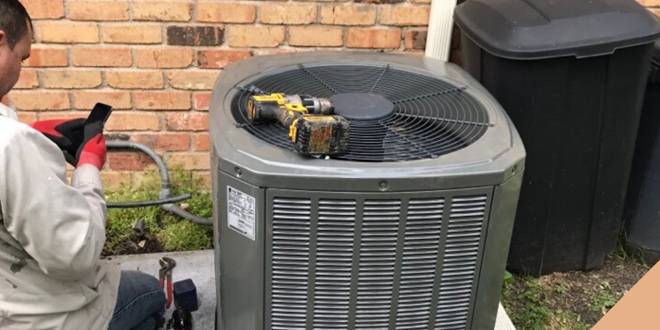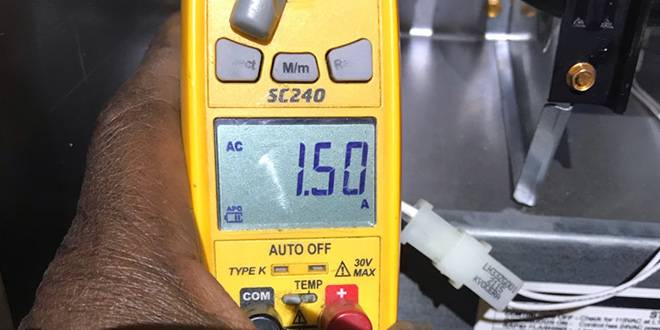
Water leakage from your air conditioner can be a worrying sight, but it’s a common issue that many homeowners and business owners face. Understanding the reasons behind this problem and knowing how to address it can save you from costly repairs and potential damage to your property. In this blog post, we’ll explore the common causes of AC water leaks, provide tips on how to prevent them, and explain when it’s time to call in a professional.
Key Points Covered
- Common causes of AC water leaks
- Prevention tips
- How to handle minor leaks
- When to call a professional
- Comparative analysis: Preventive maintenance vs. reactive repairs
- Fun facts about air conditioners
- Frequently asked questions
Common Causes of AC Water Leaks
There are several reasons why your air conditioner might be leaking water:
- Clogged Drain Line: The most common cause of water leakage is a clogged drain line. Over time, dirt, dust, and mold can accumulate and block the drain pipe, causing water to back up and overflow. This can be easily prevented with regular cleaning.
- Dirty Air Filter: When the air filter is dirty, it restricts airflow over the evaporator coil, causing the coil to freeze. When the ice melts, it can lead to excessive water dripping. Regularly changing or cleaning your air filter is a simple yet effective way to prevent this.
- Low Refrigerant Levels: Low refrigerant levels can also cause the evaporator coil to freeze and then thaw, resulting in water leakage. This issue often requires a professional to check and refill the refrigerant.
- Broken Condensate Pump: In some systems, the condensate pump is responsible for moving water out of the unit. If the pump is broken, water will accumulate and leak. Regular maintenance can help detect and fix this issue before it leads to leakage.
- Improper Installation: If your AC unit was not installed correctly, it might not be level, which can cause water to drain improperly and leak. Ensuring your unit is installed by certified professionals can prevent such issues.

Prevention Tips
Preventing water leaks from your AC involves regular maintenance and a few proactive measures:
- Regular Maintenance: Schedule annual maintenance with a professional service like Spencer Air Conditioning & Heating. Regular check-ups can identify potential issues before they become major problems. Explore our residential and commercial services.
- Inspect and Clean Drain Lines: Regularly inspect and clean the drain lines to prevent clogs. This can be done by pouring a mixture of vinegar and water through the line to clear any buildup.
- Check and Change Air Filters: Replace your air filters every 1-3 months to ensure proper airflow and prevent the evaporator coil from freezing.
- Monitor Refrigerant Levels: Ensure your refrigerant levels are adequate. Low levels not only cause leaks but also reduce the efficiency of your AC system. A professional technician can check and refill refrigerant if needed.
- Test the Condensate Pump: Periodically test the condensate pump to ensure it’s working correctly. A malfunctioning pump can cause water to accumulate and leak.
How to Handle Minor Leaks
If you notice a minor leak, there are a few steps you can take before calling a professional:
- Turn Off the AC: Switch off your air conditioner to prevent further water damage. This also stops the unit from operating under potentially harmful conditions.
- Clean the Drain Line: Use a wet/dry vacuum to remove any clogs from the drain line. Regular cleaning can prevent future clogs and leaks.
- Check the Air Filter: Replace a dirty air filter to improve airflow. This simple step can prevent many common AC issues.
- Inspect the Unit: Look for visible signs of damage or blockage. Sometimes, the source of the leak can be easily identified and rectified.
If the leak persists, it’s best to contact a professional. Spencer Air Conditioning & Heating services various areas and can provide prompt assistance.

When to Call a Professional
While some minor leaks can be handled with basic troubleshooting, there are times when professional help is necessary:
- Persistent Leaks: If your efforts to stop the leak are unsuccessful, it’s time to call in a professional. Persistent leaks could indicate a more serious underlying problem that requires expert attention.
- Electrical Issues: Water leaks can cause electrical hazards. If you suspect any electrical issues, turn off the unit and contact a technician immediately. This is crucial for your safety and the longevity of your system.
- Refrigerant Problems: Handling refrigerants requires specialized knowledge and tools. If you suspect low refrigerant levels, a professional should handle the refill. Incorrect handling can cause harm and further damage to your system.
Preventive Maintenance vs. Reactive Repairs
| Aspect | Preventive Maintenance | Reactive Repairs |
| Cost | Lower long-term costs | Higher long-term costs |
| Frequency | Regular, scheduled intervals | As needed, typically when problems arise |
| Downtime | Minimal, planned during non-peak times | Potentially significant, unplanned outages |
| System Lifespan | Extended lifespan due to proactive care | Reduced lifespan due to delayed fixes |
| Efficiency | Maintains high efficiency | Reduced efficiency due to neglected issues |
| Peace of Mind | High, knowing system is well-maintained | Low, uncertainty about future breakdowns |
Fun Facts About Air Conditioners
- The first modern air conditioner was invented by Willis Carrier in 1902 to control the humidity in a printing plant.
- Air conditioning has significantly influenced architectural design, enabling the development of skyscrapers and modern office buildings.
- Without air conditioning, many technological advances and comforts of modern life would be impossible in hot climates. It’s estimated that air conditioning is responsible for over 50% of the total electricity consumption in hot regions during peak summer months.

FAQs
Q: How often should I schedule professional AC maintenance?
A: It’s recommended to schedule maintenance at least once a year, preferably before the cooling season starts. Regular maintenance can help prevent many common issues that lead to water leaks.
Q: Can a dirty air filter cause my AC to leak water?
A: Yes, a dirty air filter can restrict airflow, causing the evaporator coil to freeze and subsequently leak water when it melts. Regularly changing your air filter can prevent this problem.
Q: What should I do if my AC is leaking water?
A: Turn off the unit, check the air filter, and clean the drain line. If the leak persists, contact a professional technician. Prompt attention can prevent more serious damage and costly repairs.
Water leakage from your air conditioner is a common issue that can often be prevented with regular maintenance and proper care. By understanding the causes and knowing when to call a professional, you can keep your AC system running smoothly and efficiently. For expert AC services, visit Spencer Air Conditioning & Heating’s contact page to schedule an appointment today.




